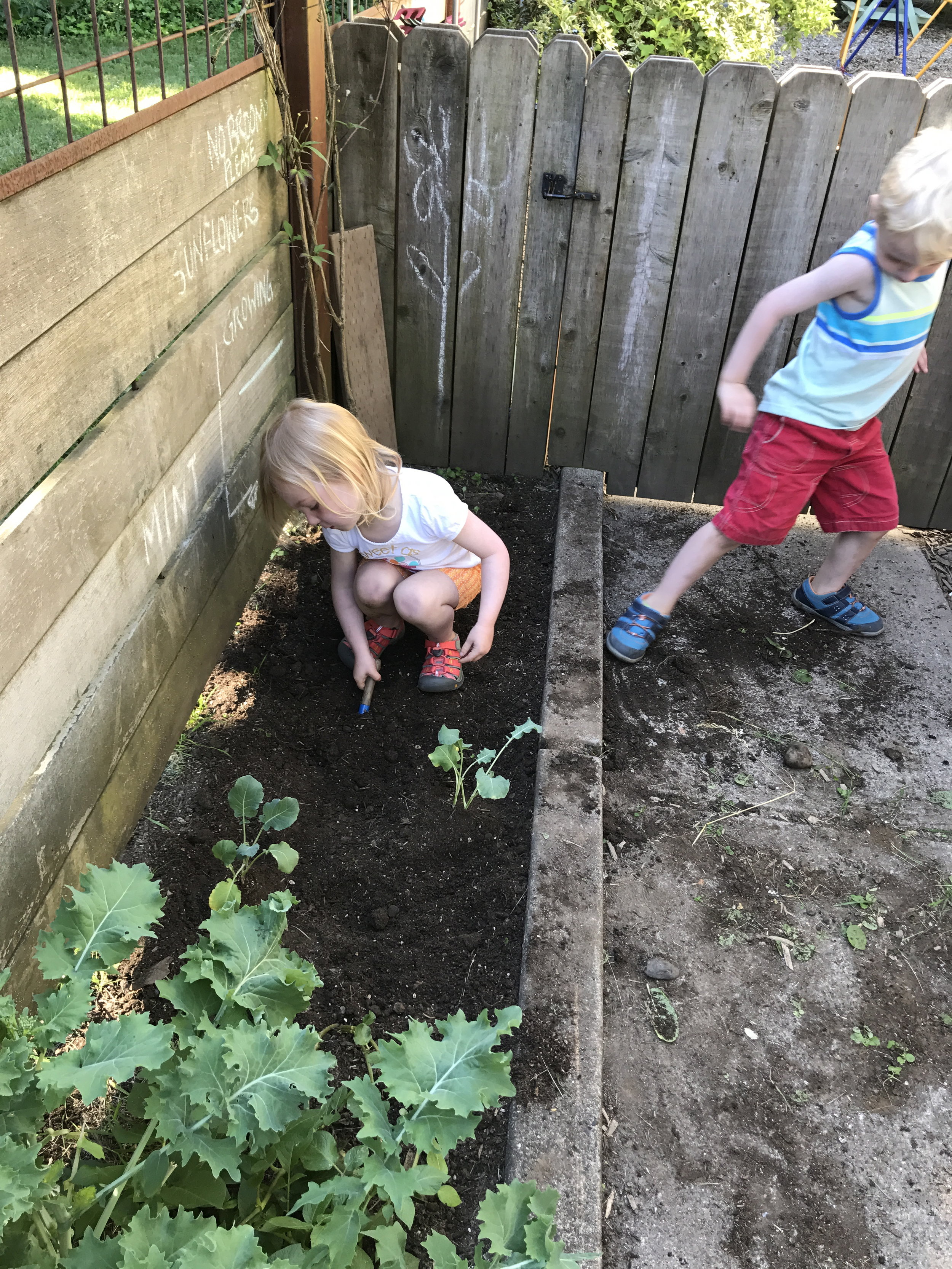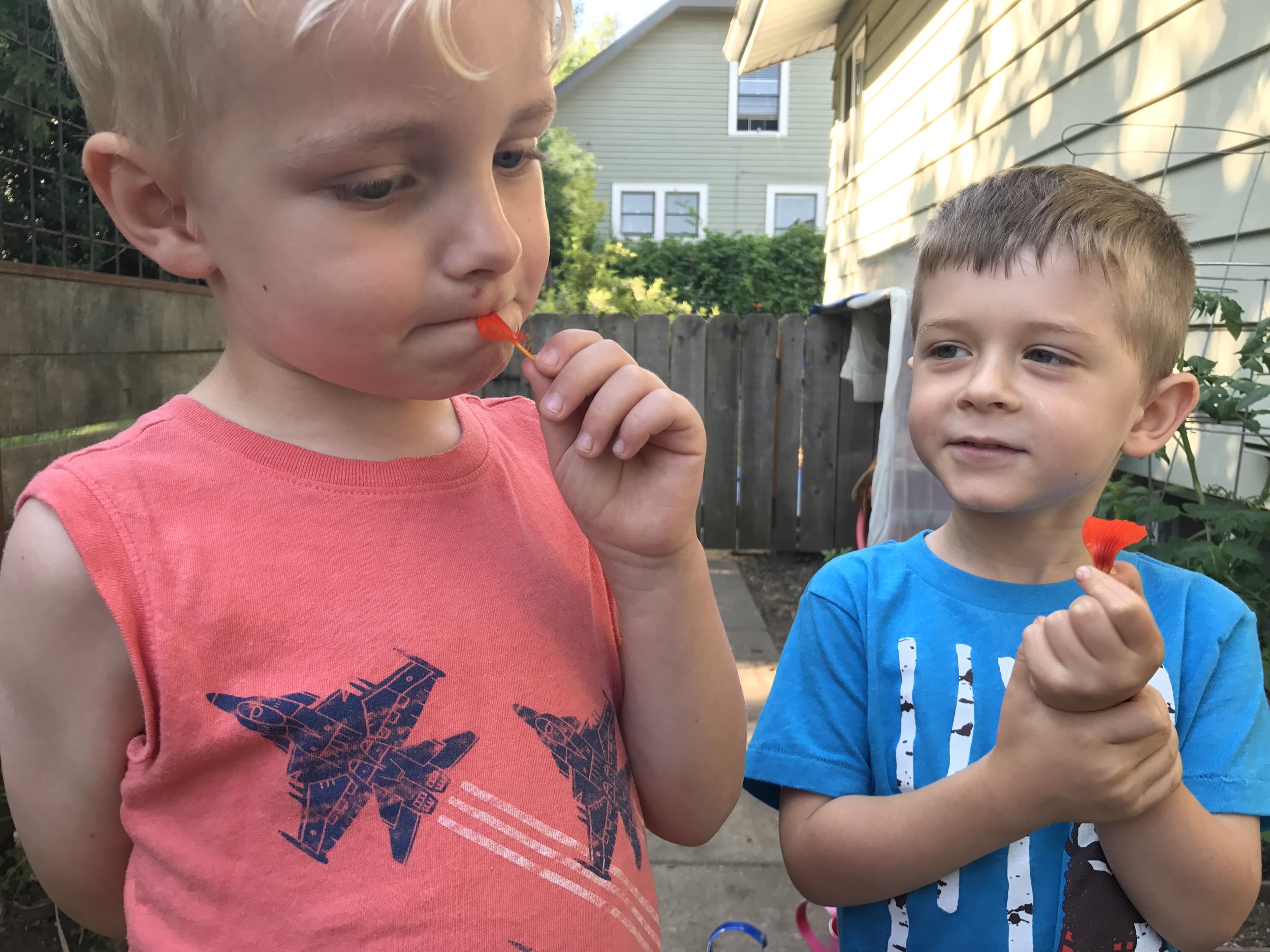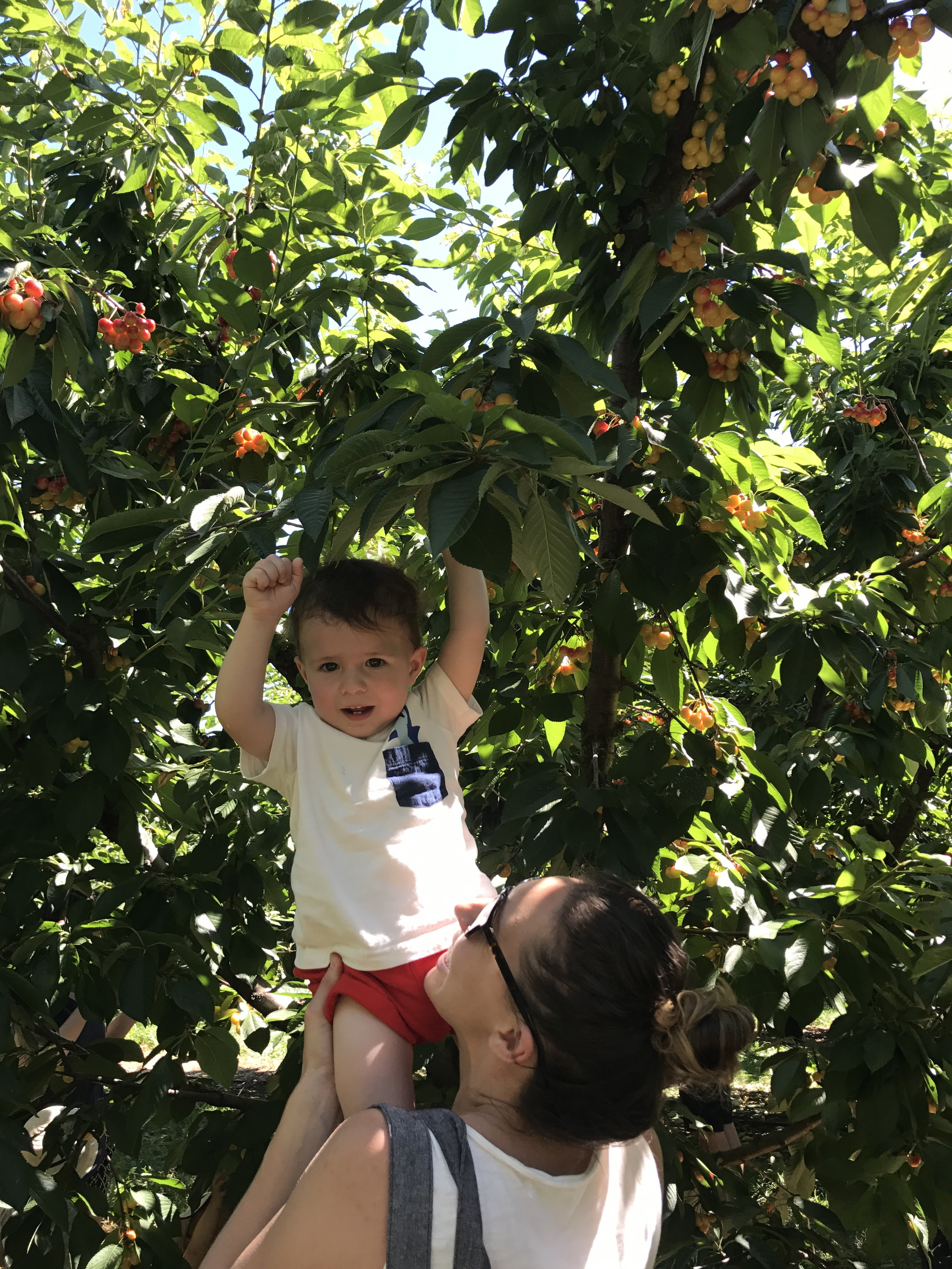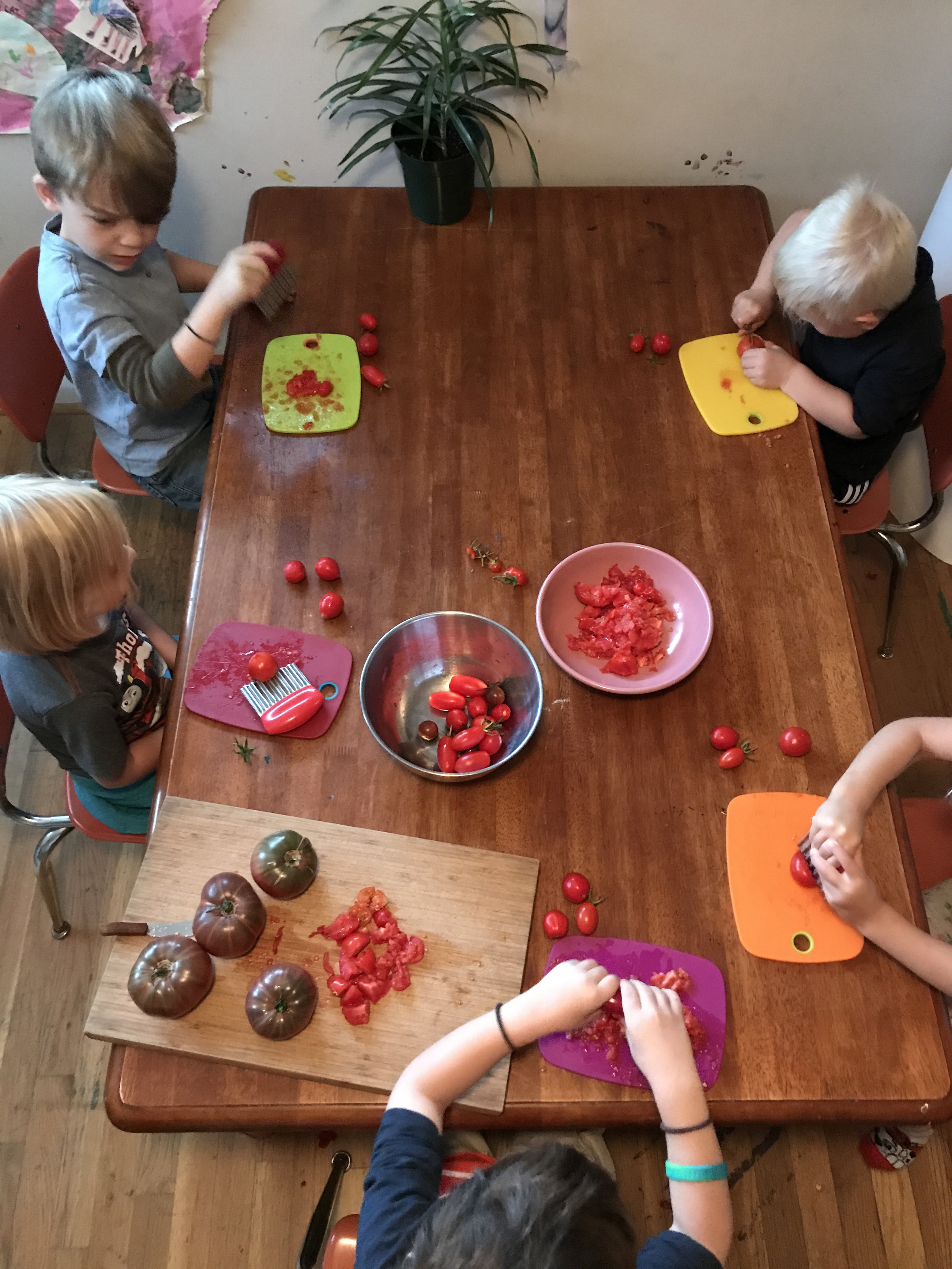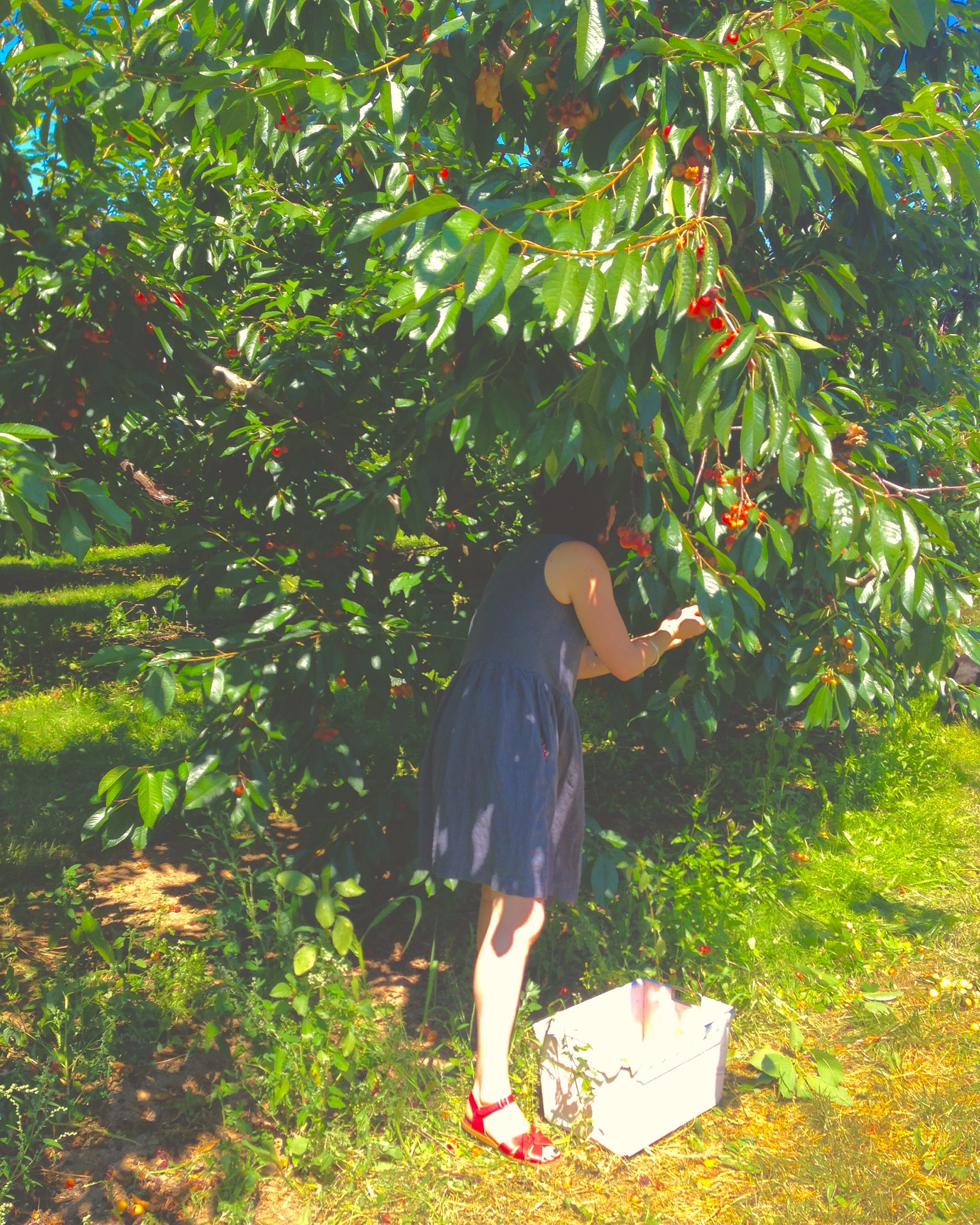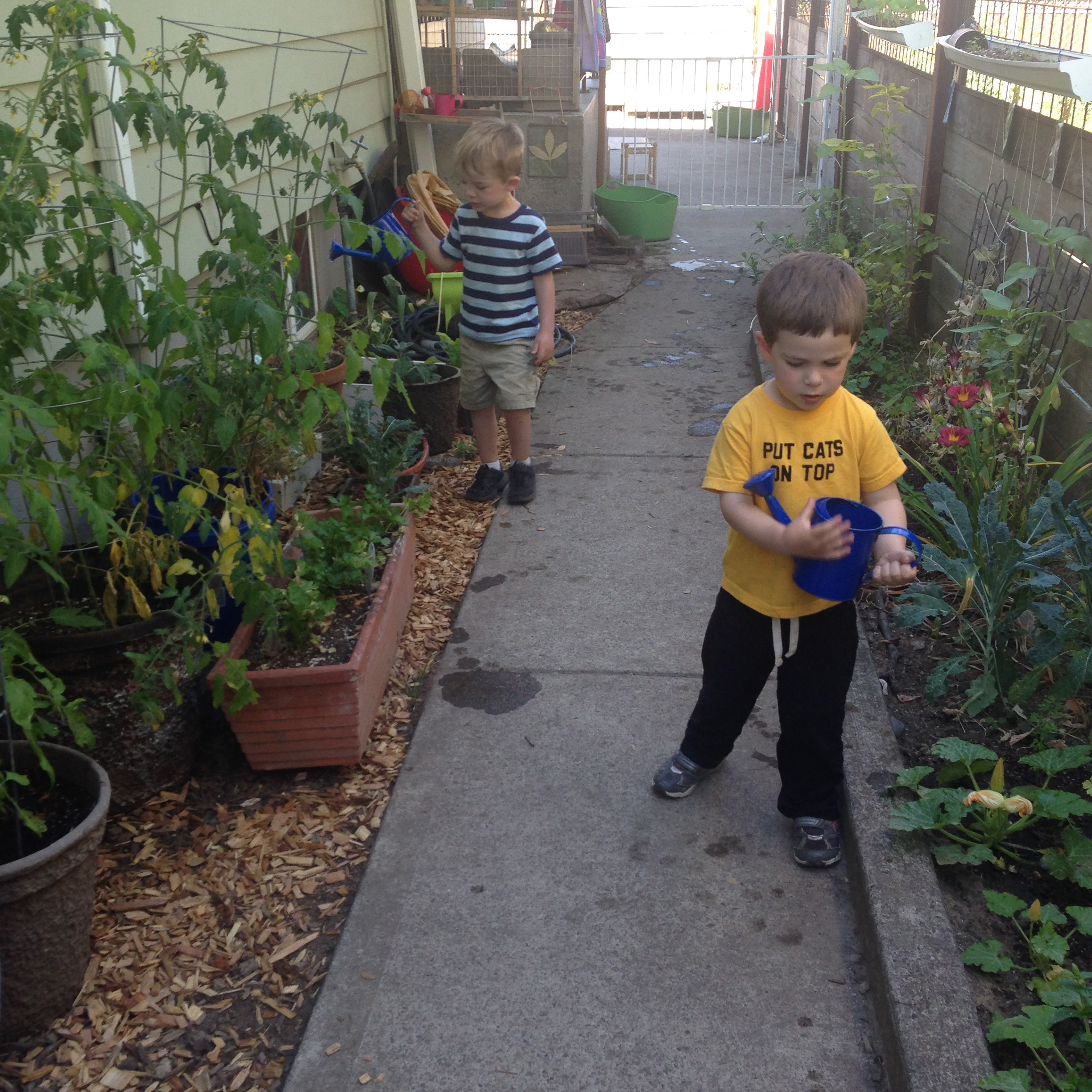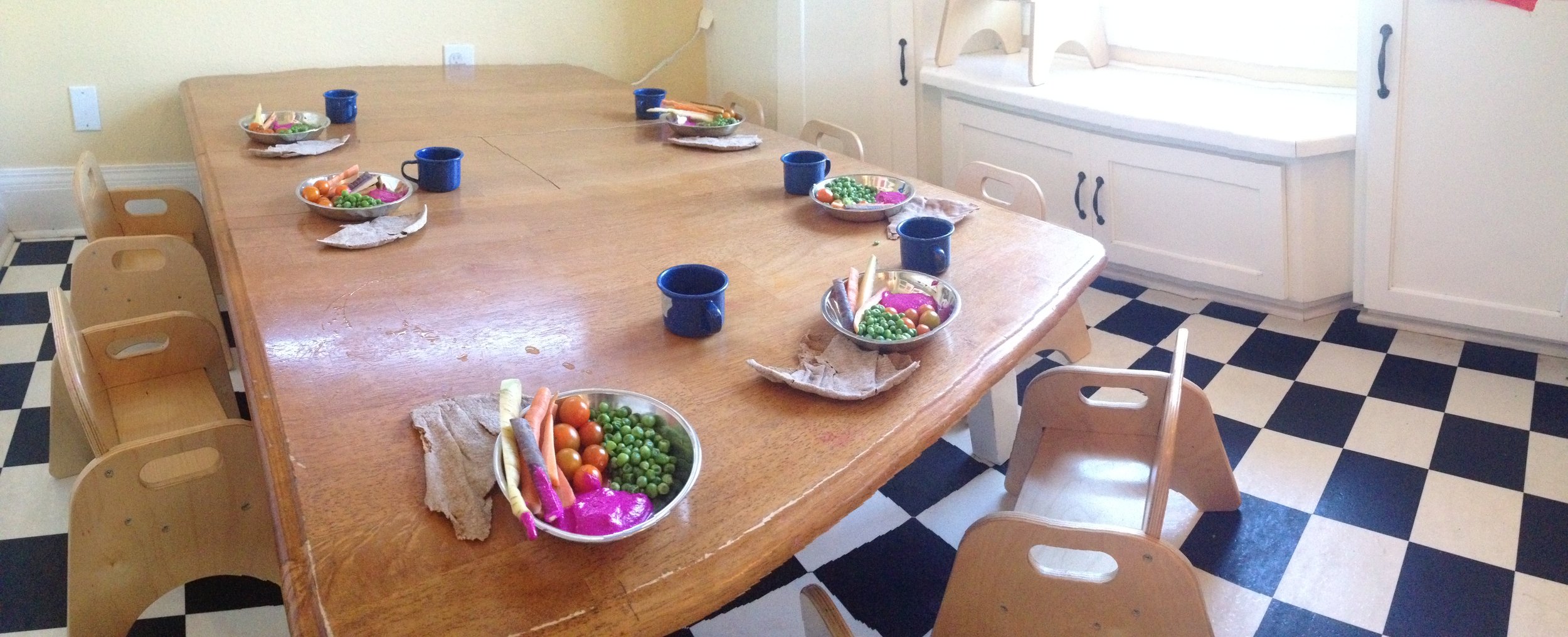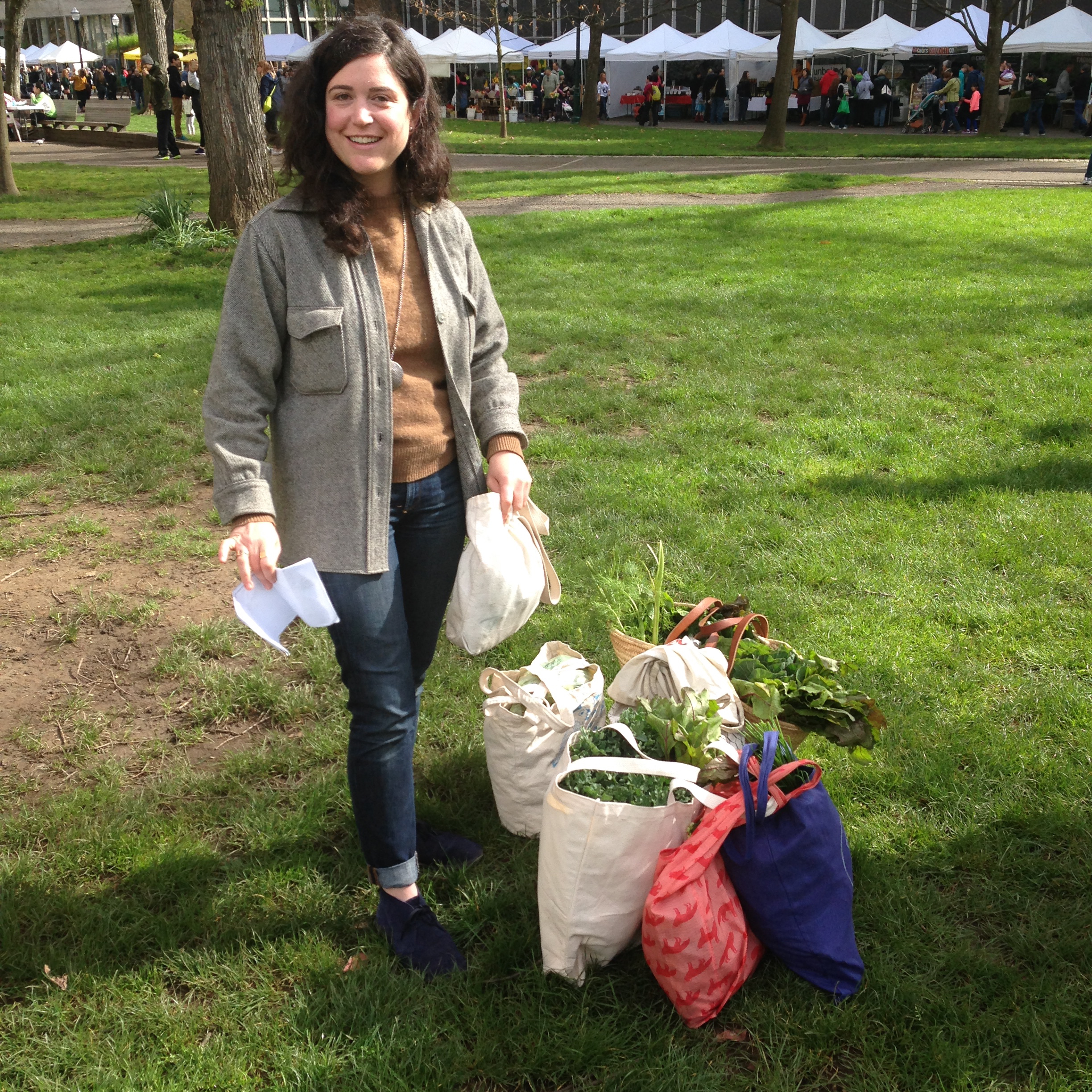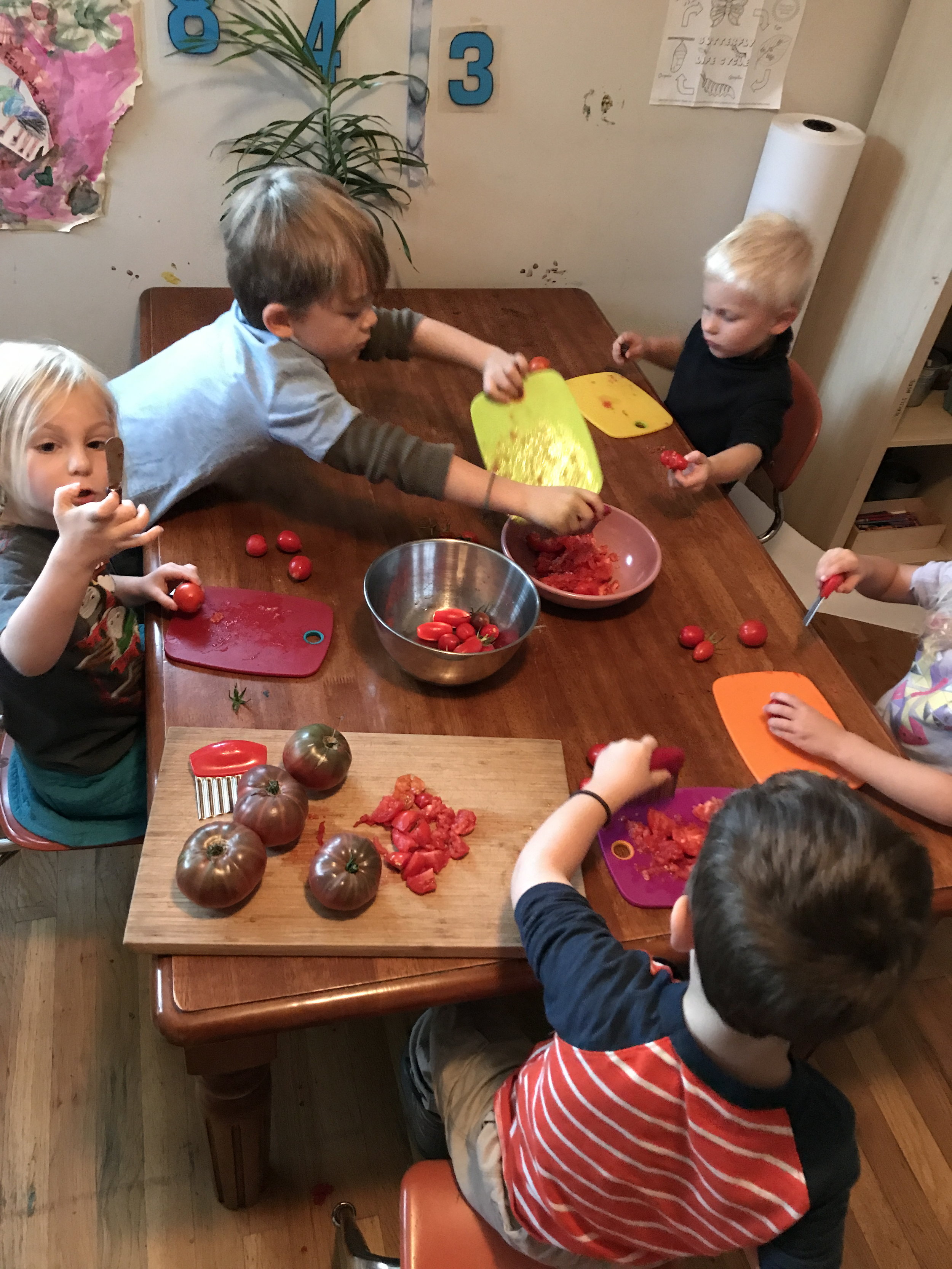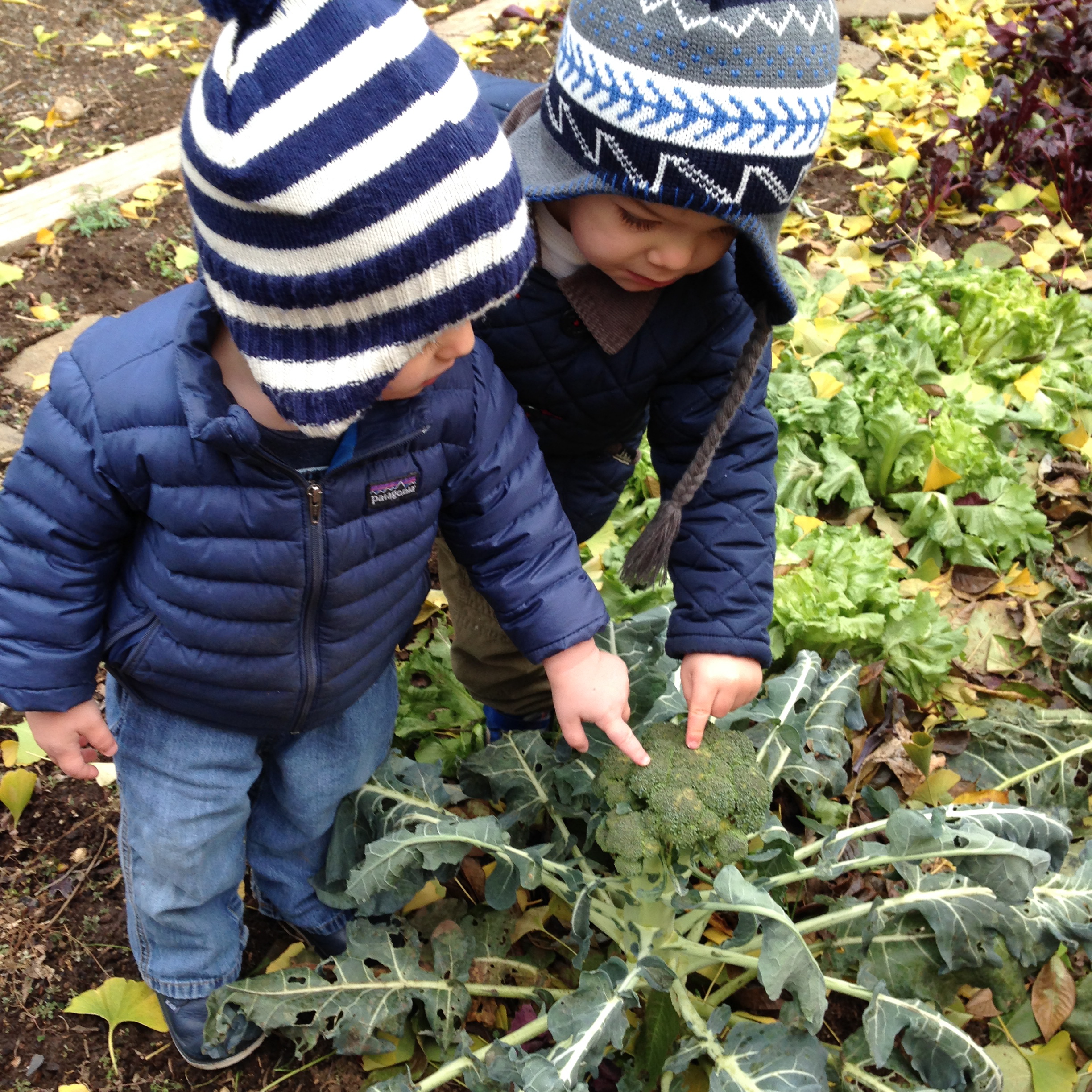FOOD & GARDENING PROGRAM
Food is a necessity for all of us- it fuels our bodies. In young children adequate nutrition plays a major role in growth and development, as well as mood and energy levels throughout the day. Food also offers a tool for learning, and one that has the power to excite children of all ages because it is tangible. Children can touch and feel food with their hands, and satisfy the instinct to explore orally- by eating!
We want the children in our care to be fueled by nutrients derived from minimally processed foods. We want all ages to have exposure to a variety of foods and preparations. We want the children in our care to gain an understanding of how foods change through the transformative process of cooking and baking, and how the availability of foods in our region change throughout the seasons. For example, we want children to associate winter months with root vegetables like sweet potatoes and apples, whereas summer months are associated with an abundance of fresh berries and vine vegetables such as cucumbers. We supply 90 % of produce from Oregon/Washington farms, purchased directly from farms to ensure maximum nutrient density. We support this awareness of seasonality through our gardening program, and as children grow, we want them to participate in the process of preparing foods, as well as growing them.
We believe that fostering a connection to the food we eat has an impact on our body's ability to digest it, and on our willingness to try new foods and expand our palate. As children grow to see more of the world around them, we hope this connection will activate a greater awareness of our relationship to the earth and plant life cycles.
Young children are developing their palate and experience many changes in taste preferences in early childhood. For example, many children will willingly taste and enjoy foods at age 2 and then refuse those same foods at age 3. Our nutrition program emphasizes the idea that meals a time to engage with each other and care for our bodies, as opposed to a time for negotiations: we provide complete and balanced meals and snacks, children decide what they want to eat.
Through our meal service, we will encourage children's curiosity, and give them ample opportunities to try new flavors and textures. When all children are eating the same foods, they encourage each other to be adventurous. By eliminating the comparisons and jealousy that ensue when each child has a meal brought from home, we can spend our time exploring the foods we are all eating. Meals become a time for enjoying each other's company and the special moment that is created when food is shared with friends.
An example of a daily menu.
In addition to meal service, we have a gardening program that children participate in maintaining and harvesting. Where age appropriate, children will help to prepare some foods that we eat together, and when children are too young to help in preparation, they will still have the opportunity to have a sensory experience with the foods we eat in a 'touch and feel' scenario.



